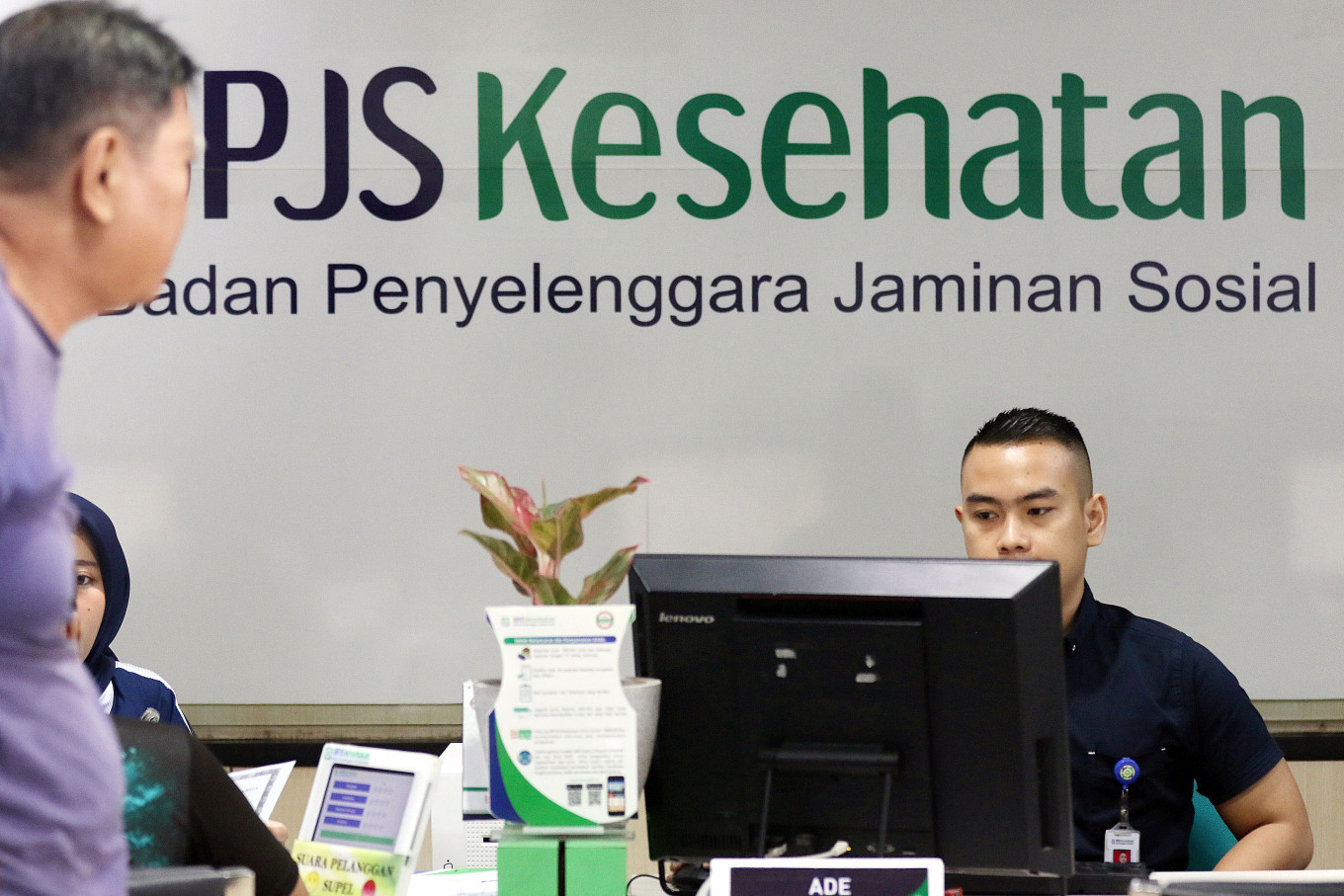Popular Reads
Top Results
Can't find what you're looking for?
View all search resultsPopular Reads
Top Results
Can't find what you're looking for?
View all search resultsHemodialysis patient group to challenge BPJS Kesehatan premium increase for second time
Through Presidential Regulation (Perpres) No. 64/2020 signed on May 5, President Joko "Jokowi" Widodo's administration once again increased the monthly premiums for the national health insurance.
Change text size
Gift Premium Articles
to Anyone
T
he Indonesian Hemodialysis Patient Community (KPCDI) will once again file a judicial review to the Supreme Court against the government’s decision to increase the premiums of the Health Care and Social Security Agency (BPJS Kesehatan) after the former annulled a similar policy earlier this year.
"The KPCDI is currently discussing [the plan] with a team of lawyers and preparing the lawsuit dossier,” KPCDI chairman Tony Samosir said in a statement published on the group’s website on Wednesday.
Additionally, Tony said the decision to increase premiums amid the current COVID-19 outbreak in the country was “unfortunate”.
Through Presidential Regulation (Perpres) No. 64/2020 signed on May 5, President Joko "Jokowi" Widodo's administration once again increased the monthly premiums for the national health insurance program.
The regulation raises the premium for first-class services to Rp 150,000 (US$10.11) per month per person from Rp 80,000, while the second-class premium was increased to Rp 100,000 from Rp 51,000. The premium for third-class services — the most affordable one — was increased to Rp 42,000 from Rp 25,500.
The government will fully subsidize the increase for third-class services this year and participants will only be required to pay the initial premium of Rp 25,500. Starting from January 2021, however, the subsidy will be reduced by Rp 7,000, so third-class service participants will need to pay Rp 35,000.
The new Perpres is a revision to the previous regulation on the same matter, which also stipulated the rise of BPJS premiums but with a higher increase for first-class and second-class services.
Read also: COVID-19 exposes flaws in Indonesia’s health insurance program
The previous policy, stipulated in Perpres No. 75/2019, was revoked by the Supreme Court after the KPCDI filed a judicial review against it.
"Even though there has been a change in the increase, it is still considered burdensome for the public, especially amid the current uncertain economic conditions," Tony said, adding that the KPCDI saw the increase as the government's way to "outsmart" the court's decision.
Tony went on to say that the government should not increase the premium for the third-class services as participants of the most affordable class made up the majority of the health insurance's 35.14 million individual participants, with 21.64 million people as of May.
BPJS Watch advocacy coordinator Timboel Siregar also decried the increase of the third-class premium amid the COVID-19 pandemic, adding that it would be ineffective as around 14.83 million BPJS Kesehatan participants in all classes still had premiums in arrears.
He further said that the government should instead review the third-class service participants’ data so that the poor people who were unable to afford monthly premiums could be allocated to the BPJS Kesehatan’s Recipients of Contribution Assistance (PBI), where their premiums would be fully subsidized by the government.
“Just perform a data cleansing and then some participants can be transferred to the PBI. So, the poor can be truly covered and [the third-class service] subsidies are right on target,” he told The Jakarta Post on Friday.
While some members of the public rejected the premiums increase, the government said that the policy aims to improve the national healthcare system and help the insurance agency improve its services and standards amid mounting debts.
BPJS Kesehatan president director Fachmi Idris also said that the new premiums would help the company repay liabilities that were already in default to hospitals and balance its financial position this year.










